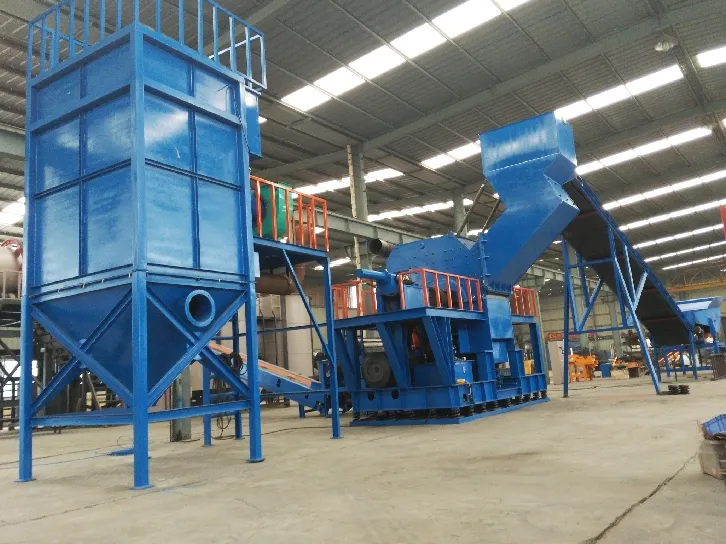

Nov . 11, 2024 17:24 Back to list
How Does a Copper Wire Granulator Work?
In an increasingly eco-conscious world, recycling has become a critical component of sustainable living. One of the standout processes in scrap metal recycling is the granulation of copper wire. Among the various machines designed for this purpose, the copper wire granulator is particularly effective in separating copper from its insulation, thus maximizing value while minimizing environmental impact. But how exactly does a copper wire granulator work?
The Basics of Copper Wire Granulation
Copper wire granulators are specialized machines designed to process scrap copper wire and recover copper metal. The process begins with the collection of scrap copper wire, which typically includes leftover wires from construction sites, electrical projects, or discarded electronic devices. Once the copper wire is collected, it is transported to a granulator for processing.
The granulation process involves several key stages feeding, shredding, separation, and collection.
Stage 1 Feeding
The first step is feeding the copper wire into the granulator. This is often done through a hopper, where operators can load large volumes of wire at once. The granulator is built to accommodate different wire sizes, ensuring versatility in handling various types of scrap. The operator’s job in this stage is to monitor the feed rate and ensure that the wire is fed evenly into the machine.
Stage 2 Shredding
Once the wire is fed into the granulator, it goes through a shredding mechanism. This stage uses powerful blades that cut and shred the copper wire into small pieces. The design of the blades and the cutting mechanism is critical because it determines how efficiently the wire can be processed. A well-designed shredding process ensures that the copper is separated from the insulation and reduces it to a manageable size for the subsequent separation process.
Stage 3 Separation

After shredding, the mixture of copper and plastic insulation moves to the separation stage. This is where the granulator's ingenuity truly shines. Most copper wire granulators will use a combination of air separation and vibration to effectively separate the lightweight plastic insulation from the heavier copper particles.
Air separation involves blowing air through the mixture, which allows the plastic to float away while the denser copper particles fall to the bottom. Vibration tables or screens may be used in conjunction to help further sort the materials based on weight and size. This stage is crucial as it ensures a high recovery rate of copper, which can be sold as scrap for a premium price.
Stage 4 Collection
The final product of this process is pure copper granules, which can be collected and stored for sale or further processing. Typically, the granules produced are of high purity, often reaching up to 99% copper content. Meanwhile, the residual plastic insulation is diverted to a different waste stream, where it can be managed and recycled appropriately.
Advantages of Using a Copper Wire Granulator
Utilizing a copper wire granulator offers multiple benefits. First and foremost, it maximizes the recovery of valuable copper from scrap wire, which is critical given the rising prices and demand for copper in various industries. Additionally, the efficient separation process reduces the overall volume of waste by ensuring that both the copper and the insulation are handled responsibly.
Moreover, copper wire granulators are designed to minimize environmental impact. By efficiently processing waste materials, these machines help reduce the need for new raw materials, conserve energy, and decrease overall pollution.
Conclusion
Copper wire granulators play an essential role in the recycling industry, transforming a waste product into a highly valued resource. Through a systematic process of feeding, shredding, separation, and collection, these machines ensure that copper is recovered efficiently and sustainably. As the world continues to prioritize environmental stewardship, technologies like copper wire granulators will become even more vital in promoting sustainable recycling practices and addressing the challenges of waste management.
Latest news
Troubleshooting Common Eddy Separator Problems
NewsJul.04,2025
The Role of Metal Recycling Plants in Circular Economy
NewsJul.04,2025
The Impact of Recycling Line Pickers on Waste Management Costs
NewsJul.04,2025
Safety Features Every Metal Shredder Should Have
NewsJul.04,2025
How Industrial Shredders Improve Waste Management Systems
NewsJul.04,2025
How Cable Granulators Contribute to Sustainable Recycling
NewsJul.04,2025